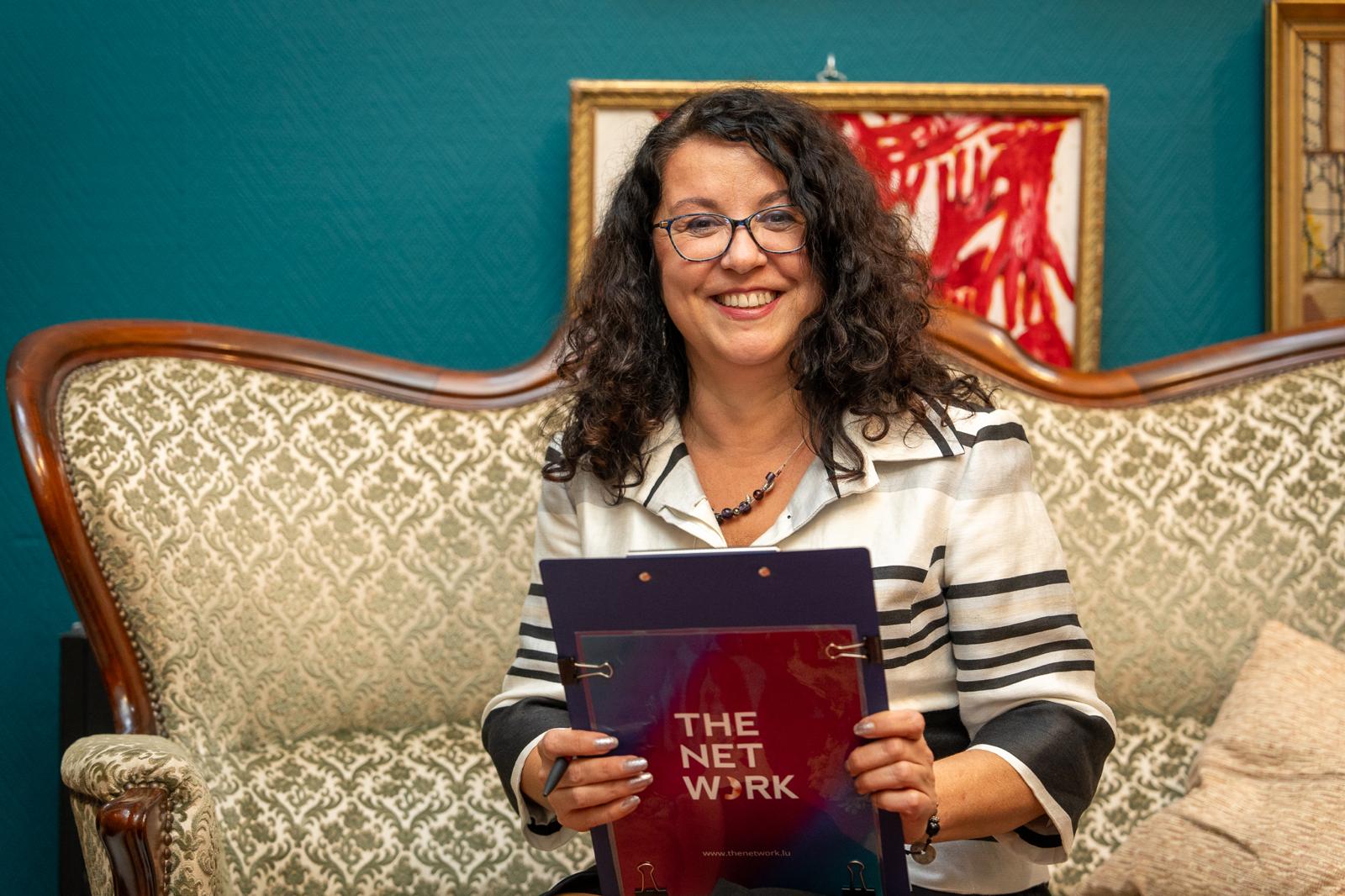Despite its international reputation and economic strength, Luxembourg continues to fall short on one key front: gender parity in executive leadership.
Women make up nearly half of the country’s workforce (World Bank, 2023), yet they remain significantly underrepresented in top corporate roles—particularly as CEOs.
The state of gender parity
Despite Luxembourg ranking among the lowest in the EU for women in managerial roles — just 22.2% compared to over 40% in countries like Sweden and Latvia (Eurostat, 05 March 2025) — recent progress has emerged, particularly in the public sector. By mid-2024, women held 38.64% of board positions in public establishments, up from 27.41% in 2015, according to the Luxembourg government.
Yet the private sector continues to lag behind.
Bias, mentorship, visibility and inclusive cultures
Women continue to face a range of invisible hurdles on their way to leadership—some subtle, others glaring. “I also faced the classical challenges,” says Agnieszka Zajac, Managing Partner of the renowned executive search firm Odgers Berndtson Luxembourg
“Gender bias, imposter syndrome, being told I was too direct, too emotional—or not enough.”
These quiet but persistent forms of bias still shape the daily experience of many women in leadership. Mariana recalls her early days in executive roles, when being the only woman in boardrooms often meant being interrupted—or ignored. Mariana Florea, a dynamic voice for gender equity and former President of THE NETWORK Luxembourg, a non-profit organisation that has long championed women’s advancement, said:
“I had to learn how to claim space,” she says. “It took time to understand that confidence doesn’t mean fitting in—it means standing firm in your voice, even if it makes others uncomfortable.”
They both agree that mentorship is key—but it’s only part of the equation. At THE NETWORK, Mariana helped launch mentoring programmes connecting emerging female talent with seasoned leaders across sectors. Events like “Empowering Women on Board” also addressed the internal barriers that often hold women back.
“Women are often more qualified than they think — they just have to dare more,” she says. “It’s also important to understand what’s holding them back and where they might be self-sabotaging.”
Still, visibility and sponsorship are what truly open doors.
“When a woman sees someone like her leading a company, something clicks. She realises, ‘I can do this too.’ That visibility is powerful,” Mariana explains.
Agnieszka adds that sponsorship often makes the difference between being considered and being chosen. “Mentorship is important, but sponsorship is even more critical,” she says. “You need people who speak up for you when you’re not in the room. People who challenge the system. Who say: she’s ready.”
Ultimately, reshaping leadership culture is just as important as helping women rise.
“We need to stop defining leadership by how men have historically led,” claims Mariana. “Women don’t lack competence. What they often lack is visibility in decision-making circles and access to informal networks where real influence takes shape.”
For Agnieszka, building inclusive cultures means modeling vulnerability and authenticity at the top. “There’s no need to pretend. You can be both ambitious and caring, strategic and emotional. The most effective leaders I’ve seen are those who dare to lead with their whole selves.”
Quotas aren’t enough: Rethinking the system
For years, gender quotas have sparked fierce debate. Critics argue they compromise meritocracy; advocates see them as a necessary push toward fairness. Both Agnieszka and Mariana support them—but with clear caveats.
“When there’s no systemic change, quotas become a cosmetic solution,” states Mariana. “It’s not just about adding more women to the table—it’s about changing how the table is built.”
Europe’s latest effort to rebalance that table came in the form of the EU Directive on gender balance on corporate boards, which entered into force in late 2022. The directive sets binding targets: by 30 June 2026, large listed companies in the EU must ensure that 40% of non-executive directors or 33% of all directors are of the underrepresented sex. The deadline for Member States to transpose the directive into national law was December 2024.
“This EU Directive was a smart idea to start with, despite its slow implementation across Europe,” says Mariana. But she cautions that regulatory pressure must be matched by cultural evolution. “You can’t just mandate numbers. You have to challenge how leadership is defined.”
That’s exactly what Agnieszka has been doing in her role at Odgers Berndtson Luxembourg. The executive search firm has intentionally restructured how leaders are identified and selected—starting with the hiring process itself.
“Every shortlist we present is 50/50—men and women,” Agnieszka explains. “That’s not a target, that’s a standard.” Her team stresses competency-based recruitment and insists on diverse candidate pools. But even the most inclusive hiring practices have limits.
“There is no pipeline,” she adds. “If you don’t promote women at the middle management level, how can they reach the top?”
This is where structural inertia remains most stubborn. Traditional leadership paths continue to reward traits historically attributed to men—visibility, assertiveness, and network access—while undervaluing equally effective but less recognised approaches.
“We need to stop defining leadership by how men have historically led,” says Mariana. “Women don’t lack competence. What they often lack is visibility in decision-making circles and access to informal networks where real influence takes shape.”
For lasting change, both agree, organisations must stop treating equality as a metric—and start seeing it as a mindset that shapes everything from hiring to succession planning to daily decision-making.
Closing the gap: The role of the private sector
“The private sector has a pivotal role in accelerating gender equity. To close the gap, we need more than good intentions—we need action, accountability, and allyship,” remarks Mariana. She advocates for stronger cross-sector collaboration, clear metrics, and a shift from mentorship to sponsorship—ensuring women are not only guided, but actively supported in key leadership decisions.
“Men are still paid more than women for the same job and qualifications. Often, women are even more qualified,” she adds pointedly.
Agnieszka sees a disconnect between companies’ stated goals and their day-to-day practices. While many organisations talk about wanting more diverse leadership, they often cling to a rigid, outdated idea of what a CEO looks like.
In her work, Agnieszka is helping companies rethink that model. From blind recruitment to inclusive leadership pipelines, her team pushes for structural reforms—starting with competency-based hiring. “It’s not enough to say ‘we support diversity.’ You need intentional strategies,” she says. “Real change happens when it’s measured, funded, and tied to business goals.”
The future is female—and human
As Luxembourg navigates the future of leadership, the conversation is shifting—from token representation to meaningful transformation. For leaders like Agnieszka Zajac and Mariana Florea, equity isn’t a distant goal; it’s a daily commitment to challenging norms, elevating underrepresented voices, and reimagining what leadership can and should look like.
The next generation is not asking for permission to lead differently—they are demanding environments where empathy, inclusion, and purpose are not exceptions, but expectations. That evolution won’t be driven by quotas alone, but by organisations willing to question legacy systems, invest in diverse talent, and measure success by more than profit.
Breaking the glass ceiling is no longer the end goal. The task now is more ambitious: to redesign the structure itself—so that leadership in Luxembourg reflects the diversity, resilience, and humanity of the society it serves.
And that change is already underway—in the policies being rewritten, the boardrooms being diversified, and the courageous women like Agnieszka and Mariana, who are leading with both vision and authenticity.
Read more articles:
Globalisation Isn’t Dead. It’s Changing.
Is Luxembourg Still Europe’s Wealth Capital?
Responsibility Is The Quiet Force Behind Great Leadership



